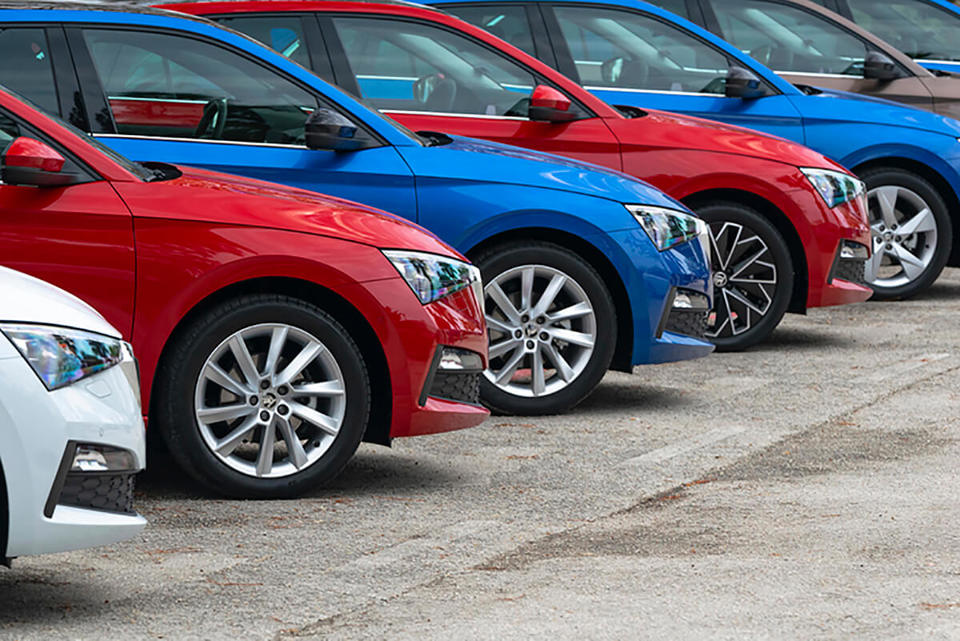Despite most economists producing a dire prognosis for the year ahead, the British Vehicle Rental and Leasing Association has engaged in some positive thinking by producing a ‘Fleet Optimists’ guide to 2012.
“With economic growth slipping across the world and austerity measures biting hard in the UK, business is not going to get any easier in 2012,” said BVRLA chief executive, John Lewis.
“However, road transport is an essential, not a luxury, and vehicle rental and leasing will continue to gain market share as long as businesses and consumers continue to look for cost-effective, hassle-free motoring.”
Vehicle registrations
Business registrations dominated new car sales in 2011 with nearly 60% of the market. History is likely to repeat itself in 2012 with emissions-conscious fleet purchasers continuing to lead the reductions we are seeing in new car average CO2 figures.
“Business users recognise the advantages of buying newer, safer and more fuel efficient cars, but only as long as manufacturers resist the urge to push up prices,” added Lewis. “There is a tipping point when fleets will put off purchases and just run their vehicles for longer.”
Lead times should return to normal levels as economic growth across the world falls, particularly in Europe.
“We are going to see some very interesting competition below the premium marques, with Korean brands in particular challenging existing fleet favourites including Vauxhall, Ford and the French carmakers with their much improved build quality, low emissions and aftercare offering,” said Lewis.
Rising demand for contract hire and rental customers will continue to bolster commercial vehicle registrations, particularly in the van market, which will be boosted by even more growth in the courier and home delivery sector.
Funding
The BVRLA expects the half-dozen new funders recruited last year to really start delivering credit to the independent leasing and rental sectors during 2012.
“These funders are fully engaged with the motor finance market and should hopefully be immune to any further Eurozone-related banking crisis,” said Lewis.
“They will also reduce the industry’s dependence on non-interested parties like Lloyds, who continue to cynically price themselves out of the market.”
Used market
Despite a continued drop in demand for used cars, the BVRLA expects residual values to hold up well this year due to the reduced amount of stock that is coming into the remarketing system. The new car retail market will remain subdued, with dealers and their customers turning to high-quality six-month to four-year-old ex-rental and leasing stock.
“You only have to look at the way prices held up in the final quarter of 2011, despite some of the pessimistic predictions from so-called remarketing ‘gurus’,” said Lewis.
Rental market
With growing numbers of manufacturers either returning or increasing their allocation to the rental market, this year will see a greater choice of newer, more fuel-efficient vehicles for car hire customers.
“We expect to see even more urbanites turn their back on car ownership and take a pay-as-you-go approach to motoring,” said Lewis. “At the same time, we hope that more organisations will take the brave step of tackling the cost-inefficiencies and safety threat posed by their grey fleet, which would also give a boost to the rental sector”
Electric vehicles
2011 was the year that the electric vehicle hype bubble burst, with just over 1000 Plug-In-Car Grant eligible cars being sold. 2012 could be the year that this exciting new technology recovers some of its credibility. This year will see a much wider range of electric cars and vans made available. It could be the year when EV sales really take off, but only if manufacturers are more realistic on pricing and the government extends the incentive grant scheme to electric vans as well, where the running cost equations are much more attractive.
“The new range-extender Ampera and Volt are an attractive prospect for company car fleets, as are the next generation of diesel hybrids and plug in hybrids. Depending on manufacturer allocations, up to 80% of these vehicles could end up on fleets,” said Lewis.
Taxation and regulation
Late last year the government produced some concrete results from its Red Tape Challenge and also announced plans for a major modernisation of the Driver and Vehicle Licensing Agency.
“I am confident that both these measures will lead to less bureaucracy and administrative costs for the fleet sector,” said Lewis.
“However, as with many government projects, the improvements on offer will take a long time to materialise.”
All motorists have long since given up any hope of redressing the unequal tax burden they pay for use of Britain’s roads, but there are signs that the government is beginning to implement its simpler and fairer approach to fiscal matters. This should lead to a steady and well-signposted change in company car tax CO2 thresholds that will hopefully enable fleets to plan at least three or four years ahead.
“The government has just started to wake up to the fact that a successful emission-based tax regime means less revenue for the Exchequer, but we will be alert to any knee-jerk efforts to make up the shortfall,” said Lewis.













Login to comment
Comments
No comments have been made yet.